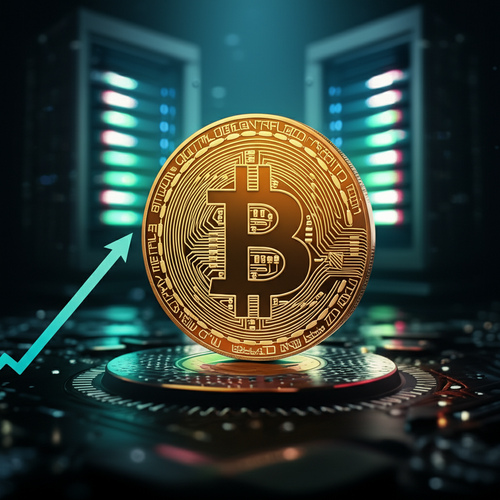The True Cost of Bitcoin Mining: Navigating Energy, Hardware, and Profitability
The allure of cryptocurrency, particularly Bitcoin, continues to captivate investors and tech enthusiasts alike. At the heart of Bitcoin’s decentralized network lies a complex process known as mining, which secures transactions and introduces new coins into circulation. While the concept of “earning” Bitcoin by validating transactions is appealing, understanding the true cost of Bitcoin mining is crucial for anyone considering entering this competitive arena. This involves not just the immediate expenses, but also the fluctuating market dynamics and the evolving technological landscape that defines profitability.
Understanding the Energy Demands of Bitcoin Mining
Bitcoin mining is an energy-intensive process. Miners use specialized computers to solve complex computational puzzles, and the first to solve a puzzle adds a new block of transactions to the blockchain and earns a reward. This “proof-of-work” mechanism requires significant electricity, making energy costs the primary operational expense for most miners.
Global Electricity Costs: A Miner’s Primary Concern
The price of electricity varies dramatically across the globe, and this geographical factor is perhaps the most significant determinant of a mining operation’s viability. Countries with abundant and cheap energy sources, often from hydropower or geothermal, offer distinct advantages. Conversely, mining in regions with high electricity tariffs can quickly render an operation unprofitable, regardless of hardware efficiency. Insights from World Population Review consistently highlight these disparities, showcasing how a miner’s location can dictate success or failure.
The Role of Hardware Efficiency
The specialized computers used for Bitcoin mining are known as Application-Specific Integrated Circuits (ASICs). These machines are designed for one purpose: to mine cryptocurrencies as efficiently as possible. The efficiency of an ASIC miner, measured in joules per terahash (J/TH), directly impacts how much Bitcoin can be mined for a given amount of electricity. Newer generations of ASICs are continually released, offering improved efficiency and processing power. Companies like Iceriver are at the forefront of this innovation, developing hardware that pushes the boundaries of performance while aiming to reduce energy consumption per unit of computational work.
Beyond Electricity: The Initial Investment and Ongoing Expenses
While electricity dominates the operational expenditure, the initial capital outlay for mining equipment and the continuous need for maintenance are also substantial factors in the overall cost of Bitcoin mining.
ASIC Miners: The Heart of the Operation
The purchase price of ASIC miners represents a significant upfront investment. These machines can range from hundreds to thousands of dollars each, depending on their hash rate and efficiency. Aspiring miners must carefully consider the return on investment (ROI) timeframe, which is influenced by the current Bitcoin price, network difficulty, and of course, electricity costs. The market for ASICs is dynamic, with prices fluctuating based on supply, demand, and the overall health of the crypto market. Researching and acquiring the right hardware is a critical first step, often discussed in communities like Reddit where experienced miners share insights and recommendations.
Infrastructure, Cooling, and Maintenance
Beyond the miners themselves, setting up a mining operation requires additional infrastructure. This includes robust power supplies, adequate cooling systems to prevent overheating (which can significantly reduce hardware lifespan), and proper ventilation. Large-scale operations often require dedicated facilities with industrial-grade electrical wiring and cooling solutions. Furthermore, ongoing maintenance, repairs, and eventual hardware upgrades contribute to the long-term expenses. Dust, heat, and continuous operation can take a toll on machinery, necessitating regular upkeep to ensure optimal performance and longevity.
The Economics of Bitcoin Mining: Profitability Factors
Mining Bitcoin isn’t just about spending; it’s also about earning. The profitability of a mining operation is a delicate balance of costs versus revenue, influenced by several external factors beyond a miner’s direct control.
Bitcoin Price and Network Difficulty
The most significant revenue driver for miners is the price of Bitcoin itself. A higher Bitcoin price translates to more valuable rewards for successfully mining a block. However, the Bitcoin network also features a self-adjusting mechanism called “difficulty.” As more miners join the network, the difficulty increases, making it harder to find a block and earn rewards. Conversely, if miners leave the network, difficulty decreases. This dynamic ensures that, on average, a new block is found approximately every 10 minutes. Understanding these core principles of Bitcoin.org‘s network is essential for projecting potential earnings.
Community Insights and Practical Tips
Engaging with the mining community can provide invaluable practical insights. Forums and subreddits, such as the Reddit community for miners, offer real-world discussions on topics ranging from optimal hardware settings to troubleshooting common issues and sharing strategies for navigating market volatility. These communities often provide a realistic perspective on the challenges and opportunities in mining, helping both new and experienced miners to optimize their operations and stay informed about industry best practices and emerging trends.
The Future of Bitcoin Mining: Sustainability and Innovation
The narrative around Bitcoin mining is constantly evolving, with increasing focus on environmental impact and technological advancements. Future trends suggest a shift towards more sustainable practices and continued hardware innovation.
Renewable Energy Integration
A significant trend in Bitcoin mining is the move towards using renewable energy sources. Miners are increasingly seeking out locations with access to cheap, abundant, and clean energy, such as hydroelectric, solar, wind, and geothermal power. This not only reduces operational costs but also addresses environmental concerns surrounding Bitcoin’s energy consumption. Integrating renewables can transform the perception of Bitcoin mining from an energy drain to a potential driver for renewable energy infrastructure development, particularly in remote areas with stranded energy resources.
Evolving Hardware and Efficiency
The race for efficiency in ASIC technology is ongoing. Manufacturers are continuously researching and developing new chips that offer higher hash rates per watt, aiming to reduce the energy footprint while increasing computational power. This technological arms race benefits miners by lowering the energy cost per unit of Bitcoin mined, making operations more competitive and profitable in the long run. Innovations in cooling technologies, such as immersion cooling, are also playing a vital role in enhancing hardware performance and extending lifespan.
Actionable Takeaways for Aspiring Miners
For those considering delving into Bitcoin mining, a strategic approach is key. First, meticulously research electricity costs in your region or potential mining locations. This is your most critical variable. Second, invest in the most energy-efficient hardware you can afford, understanding that newer models offer better long-term ROI. Third, stay informed about Bitcoin’s price movements and network difficulty, as these directly impact your profitability. Finally, engage with the mining community to gain practical knowledge and adapt to the ever-changing landscape of this dynamic industry. Careful planning and continuous optimization are essential for success in the competitive world of Bitcoin mining.



